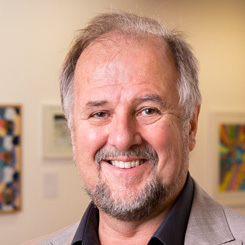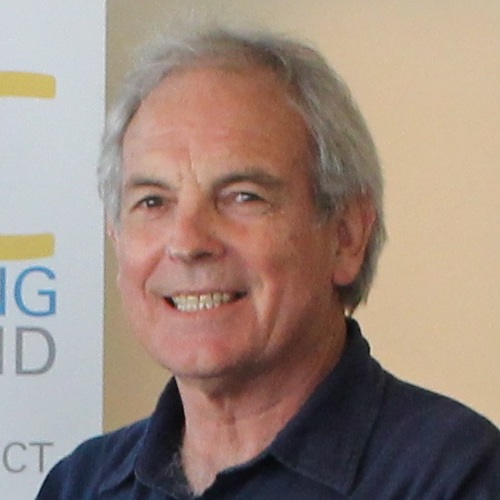An Australian Research Council (ARC) Linkage Project funded for four years from 2013 to 2016 led by The University of Melbourne.

About
Contemporary learning spaces, often termed ‘new generation’ or ‘innovative learning environments’, have been developed in schools and universities in a number of countries during the past decade. However, critical analysis of the literature suggests that little rigorous assessment or evaluation of their educative value exists. As stated by Cleveland & Fisher (2014), the literature clearly indicates that:
… approaches to evaluations that attempt to assess the effectiveness of physical learning environments in supporting pedagogical activities are in their infancy and require further development (p. 24) … Across all educational sectors, it appears that new building evaluation methodologies are required if a deeper understanding is to be attained regarding how effectively learning environments can support the educational programs and practices of the twenty-first century (p. 25).
This project addressed this gap through the development and testing of a range of multi-disciplinary evaluation strategies for learning environments. The project’s focus was on the intersection between people and the built and virtual environment. Both affective (i.e. beliefs/values/attitudes to teaching and learning, student engagement) and effective (i.e. academic performance etc.) variables were investigated.
Detailed project outline
-
Objectives
Informed by a multi-disciplinary perspective derived from the fields of education, architecture, human geography and environmental psychology, the project aimed to develop approaches to evaluation that can inform both the design and use of physical learning environments for the purpose of supporting:
- The ‘inhabitation’ of curriculum and space by students and teachers
- Connections between pedagogies and the design of learning spaces
- The alignment/convergence/productive entanglement of the many factors that influence students’ educational experiences and learning outcomes
-
Outcomes
The project was designed around a framework that enabled agility and iteration in-light of emerging knowledge and issues:
…an iterative approach to research is that of flexibility and ongoing change that meets the needs of the research design, data requirements, and analysis methods in response to new information as it is collected (Bassett, 2010).
Fundamental to the research design was a desire to pursue a mixed-methods approach championed by three independent PhD/DEd studies:
- A measurement approach (Terry Byers);
- A ‘holistic’ evaluation approach (Ana Sala Oviedo); and
- A factor identification approach (Graeme Oliver).
Using this strategy, the final outcomes of the project were intended to be brought together through a qualitative meta-analysis of the research undertaken by the PhD/DEd candidates, along with other research materials developed and gathered by the research team:
… qualitative meta-analysis is a distinctive category of synthesis in which the findings from completed qualitative studies in a target area are formally combined (Sandlowski, 2004).
The significant research materials developed and gathered by the research team have included – but are not limited to:
- The proceedings of three research higher degree (RHD) symposia (Snapshots 2014; Terrains 2015 and What’s Working 2016);
- The chapters in Evaluating Learning Environments: Snapshots of Emerging Issues, Methods and Knowledge (Imms, Cleveland & Fisher, 2016); and
- The outcomes of a systematic review of the literature; and
- Terry Byer’s completed PhD, ‘Evaluating the Effects of Different Classroom Spaces on Teaching and Learning’ and related publications.
The E21LE project has gathered substantial research materials and knowledge over the past three years. This is spread across numerous publications and other research outputs. The forthcoming book and the portal (see below) will ‘package’ the outputs of the E21LE project for a broad audience, providing ready access to what we have learned.
-
Impact
In addition to the many publications arising from the project, a culminating book (forthcoming) will bring together the new knowledge generated by the E21LE project. To be authored by Wesley Imms and Ben Cleveland, it will be a teacher/administrator/designer evidence-based and practice-focused text. It will be built on the work of:
- The project’s three PhD/DEd’s;
- Fieldwork facilitated by our Partners;
- Knowledge gained through Research Higher Degree Symposia and LEaRN’s Talking Spaces events;
- A systematic review of the literature on learning environment evaluation; and
- Wider LEaRN evaluation activities.
The book will integrate what has been learned about learning environment evaluation – practices, methods and theories. It will offer insights into why, what and how practitioners may engage the evaluation of learning spaces, including discussion about how to effectively ‘construct’ evaluations and how to ‘use’ the findings to inform evidence-based decisions.
Complementing the book, and offering a ‘window’ into learning space evaluation practice, will be the E21LE Portal. This is being designed around an overarching philosophy of bringing learning environment evaluation to end users. It is intended to be a seamless interface for users of varying levels of knowledge and interest to engage with evaluation tools and generate data which can be used to inform decisions about what to build and how to use learning spaces to best pedagogical effect.
Featured current publication:
Imms, W., Cleveland, B. and Fisher, K. (Eds.) (2016). Evaluating learning environments: Snapshots of emerging issues, methods and knowledge. Rotterdam, The Netherlands: Sense Publishers.
Publications and project outputs
Key outputs can be found in our publications repository.
People
-
 A/Prof Wes Imms, Lead Chief Investigator
A/Prof Wes Imms, Lead Chief Investigator -
 A/Porf Kenn Fisher, Associate Professor in Learning Environments
A/Porf Kenn Fisher, Associate Professor in Learning Environments -
 Prof Stephen Dinham, Chair of Teacher Education and Director of Learning and Teaching
Prof Stephen Dinham, Chair of Teacher Education and Director of Learning and Teaching -
 Prof Tom Kvan, Assistant Vice Chancellor (Campus Development)
Prof Tom Kvan, Assistant Vice Chancellor (Campus Development) -
 Dr Ben Cleveland, Research Manager
Dr Ben Cleveland, Research Manager -
 Heather Mitcheltree, Project Manager
Heather Mitcheltree, Project Manager -
 Terry Byers, PhD candidate
Terry Byers, PhD candidate -
 Anna Sala-Oviedo, PhD candidate
Anna Sala-Oviedo, PhD candidate -
 Graeme Oliver, PhD candidate
Graeme Oliver, PhD candidate
Banner: Marist College Bendigo, Y2 Architecture. Photo by Bill Conroy.
